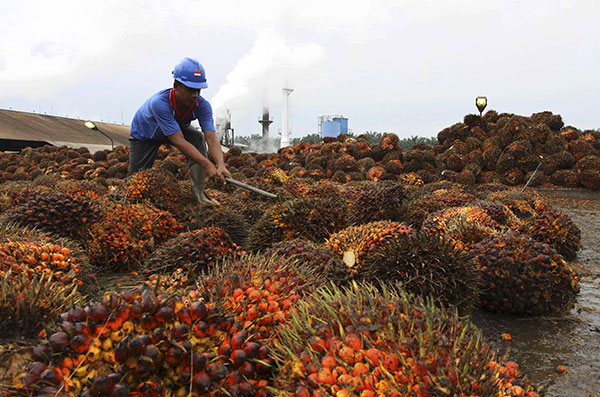
As CPO prices exceed US$750 per metric tonne, the export tax will start from US$3 per metric tonne onwards on top of the existing export levy of US$50 per metric tonne.
KUCHING: Indonesia has raised its crude palm oil (CPO) export tax to US$3 per metric tonne for May 2016 and this is expected to bode well for Malaysia’s CPO price, analysts say.
MIDF Amanah Investment Bank Bhd’s research arm (MIDF Research) in a report, said as CPO prices exceed US$750 per metric tonne, the export tax will start from US$3 per metric tonne onwards on top of the existing export levy of US$50 per metric tonne. The total tax and levy on CPO export from Indonesia will be US$53 per metric tonne for May.
“The news is positive to CPO price as it should lead to higher export of CPO from Malaysia. As a result, inventory should be depleted further and hence provide support to CPO price.
“As it is, Malaysia export tax on CPO at around US$33 per metric tonne is lower than Indonesia’s all-in tax and levy of US$53 per metric tonne.
“Our estimate of US$33 per metric tonne is based on US dollar to ringgit rate of 3.90 and five per cent export tax on the reference price of RM2,531.53 per metric tonne for May,” the research team said.
It projected that April inventory would likely decline nine per cent month-on-month (m-o-m) to 1.71 million metric tonne.
“Besides the Indonesia export tax news, we believe that Malaysia palm oil inventory should continue its downtrend in April. Strong local consumption expected at 237,000 metric tonne and stable export should more than enough to offset the seasonal increase in production,” it explained.
Overall, MIDF Research maintained its bullish view on CPO price as it expect it to surge to RM3,000 per metric tonne by end-June as inventory is expected to tumble to the critical level of 1.5 million metric tonne.
A key reason for this significant drop, it said, is the significantly low production due to the impact of El Nino.
